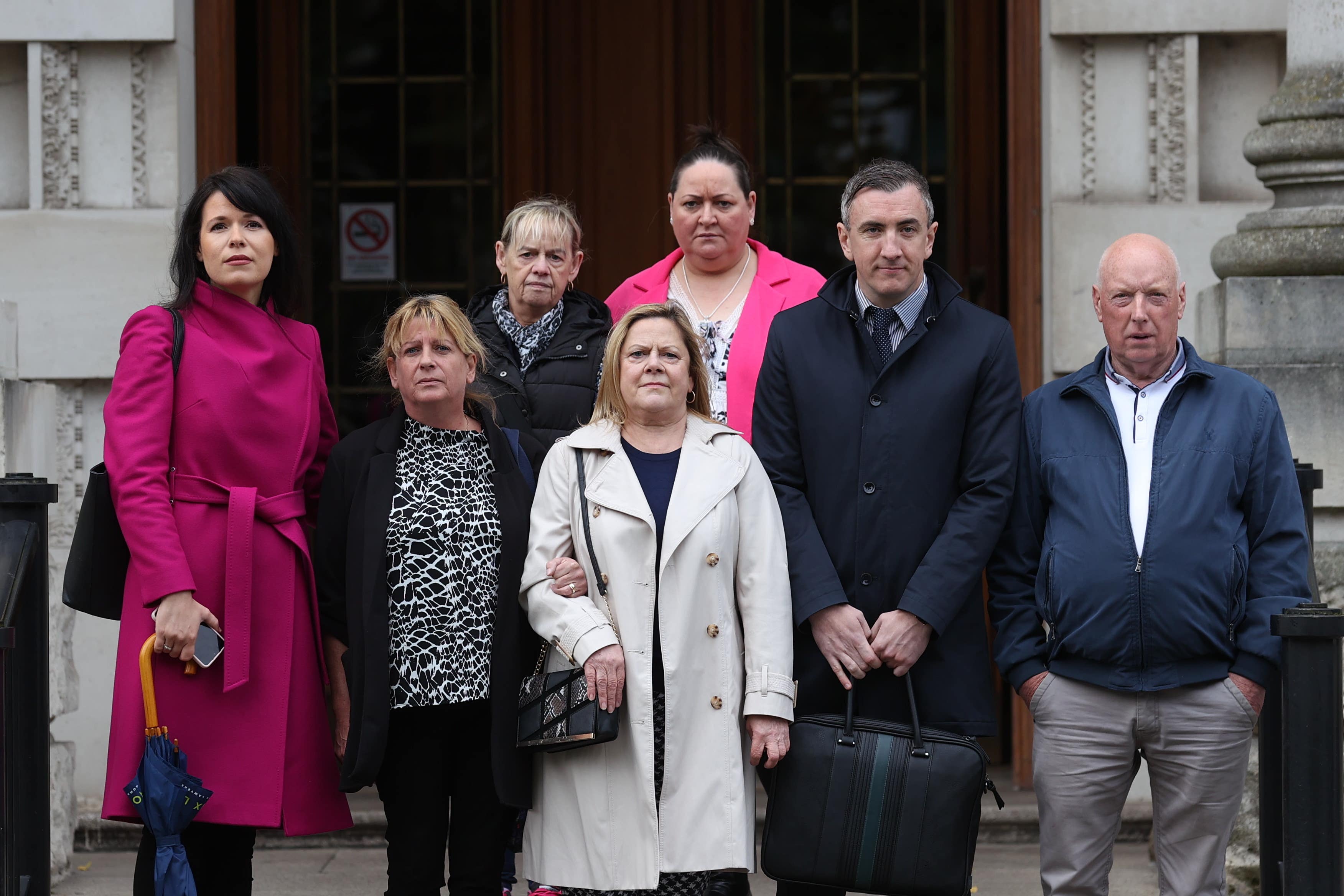Legacy Act has sparked 16 legal challenges so far, court told
The families of a number of Troubles victims and legal representatives gathered at Belfast High Court on Wednesday.

Your support helps us to tell the story
From reproductive rights to climate change to Big Tech, The Independent is on the ground when the story is developing. Whether it's investigating the financials of Elon Musk's pro-Trump PAC or producing our latest documentary, 'The A Word', which shines a light on the American women fighting for reproductive rights, we know how important it is to parse out the facts from the messaging.
At such a critical moment in US history, we need reporters on the ground. Your donation allows us to keep sending journalists to speak to both sides of the story.
The Independent is trusted by Americans across the entire political spectrum. And unlike many other quality news outlets, we choose not to lock Americans out of our reporting and analysis with paywalls. We believe quality journalism should be available to everyone, paid for by those who can afford it.
Your support makes all the difference.Sixteen legal challenges have been lodged so far against the UK Government’s controversial new laws to deal with the legacy of the Northern Ireland Troubles, a court has heard.
The families of a number of victims gathered at Belfast’s Royal Courts of Justice on Wednesday as a brief review of the cases took place in the High Court.
Representatives for the victims said the hearing was the first step in their battle to oppose the new legislation.
The Northern Ireland Troubles (Legacy and Reconciliation) Act received royal assent on Monday despite widespread opposition from political parties, victims’ organisations in Northern Ireland and the Irish Government.
The most controversial aspects of the laws include a limited form of immunity from prosecution for Troubles-related offences to those who co-operate with the new Independent Commission for Reconciliation and Information Recovery.
It will also halt future civil cases and inquests.
Legal firms Madden & Finucane, KRW Law, O Muirigh Solicitors, Phoenix Law and victims campaigner Raymond McCord are among those who have already announced legal action over the legislation.
Some of the actions challenge the ending of Troubles inquest proceedings and civil cases.
The court was told there have been 16 judicial review applications so far, involving victims’ cases ranging from 1971 through to the mid-1990s.
Mr Justice Colton said: “It is quite clear there is a degree of overlap in those applications so as a first step I would like all the applicants’ solicitors to address or identify what case or cases they say should proceed.
“There is absolutely no benefit to anybody in multiple cases arguing exactly the same point.
“Having done that, I would encourage all of you to liaise with each other to see whether or not it would be possible to identify core cases to proceed.
“That may not be possible and I may have to direct. I don’t want to do that because no doubt all the applicants in this case have a genuine interest.
“I can assure everybody that all legal arguments will be considered by the court.
“What I want to do is to do so as expeditiously as possible.”
For us, this Bill is not only unlawful but it is also immoral and it is now time for the courts to step in where Government has failed
Mr Justice Colton said he will hold a further review hearing on September 28.
Speaking outside court, Martina Dillon, who been waiting for an inquest into the death of her husband Seamus, who was shot and killed in 1997, claimed the Government has proven it does not care about victims.
She said: “We are here for the long-run, we will fight on, no matter how long it takes. We will not give up.
“We are hopeful the courts will stand by us. All we are asking for is justice.”
Grainne Teggart, from Amnesty International, called on the Irish Government to launch an inter-state case against the UK Government over the Legacy Act.
She said: “Today is step one in the fight back against this Act.
“We are encouraged that the court seems to be taking a pragmatic approach on how to deal with these cases.
“We will return next week for the next step in this process.”
“We call on the Irish Government to swiftly decide to take an inter-state case and lodge those proceedings.”
Gavin Booth from Phoenix Law, which represents some of the victims, said the families had attended court to show their commitment to opposing the legislation.
He added: “For us, this Bill is not only unlawful but it is also immoral and it is now time for the courts to step in where Government has failed.”
Mr Booth said he hopes the High Court will rule on the matter before Christmas.
Campaigner Raymond McCord, whose son was murdered by loyalists in 1997, said the human rights of victims are being breached.
He said: “We are here to challenge the British Government’s Legacy Bill through the courts.
“Three-hundred or so people (in Parliament) decided that victims’ human rights are going to be breached.
“We were left with no option, we have to take it to the courts.
“We never dreamt that we would have to fight the state as well as the system to get justice for my son.”